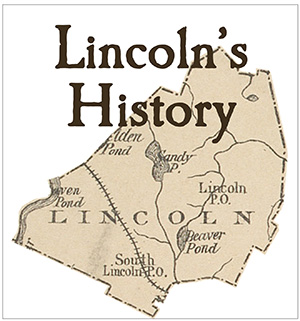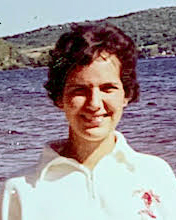By Gus Browne
Adele Peterdi Harvey of Lincoln knows something of what it means to flee from war and find refuge in the United States. She was 11 years old when Soviet tanks rolled through the streets of her village, to crush the Hungarian uprising against Soviet rule in 1956.
Her father, A. John Peterdi, had been a reconnaissance pilot for the Hungarian Air Force during World War II and spent the last few months of the war as a POW on the Russian Front. From 1946 to 1956, John held various jobs in Budapest ranging from commercial pilot to delivering groceries on a motorbike, eventually working at a machine design firm as a draftsman — whatever it took to feed his family.
The Hungarian uprising had lasted only ten days when the Soviet army invaded. Her parents decided the family should flee. Her father contacted his brother, who lived in far western Hungary, for aid in getting the family over the border into Austria. The brother knew farmers living in the border area, and the farmers knew the safest places to cross, unseen by guards.
Days later, Adele and her father departed for his brother’s home. If stopped and questioned, Adele’s father had prepared the excuse that his daughter was ill (Adele was small and thin) and the trip was for health reasons. The next day, Adele’s mother followed with one of her adult sons. (The other son would cross the border later.) Her prepared excuse was that she was joining her husband for their daughter’s convalescence. To avoid suspicion, none of them carried any luggage, save for one small briefcase containing papers.
A day or so later the family boarded a train headed west. They were instructed to exit the train at a stop near the Austrian border, to run to the nearest building, and then wait for the guides who would arrive after dark. At nightfall, local people took them through plowed fields toward the Austrian border. They were instructed to drop to the ground and stay still if they saw searchlights or the bright headlights of border patrols.
There came a moment in the darkness when Adele believed they had reached Austria. She reached down, grabbed a handful of dirt, and put it in her pocket. This time when headlights appeared, their guides told them to run through a ditch and toward the lights. They were indeed in Austria, and they were safe. The car was driven by two young American men who had come to that area specifically to assist Hungarians fleeing the invading Russians.
Eventually, 200,000 Hungarians fled their country during the uprising, and many found their way to the United States. Adele’s mother used her fluent German and capable English to contact a cousin who lived in Detroit, and he agreed to sponsor the family. A month or so later, the family was flown to the U.S. and taken to Camp Kilmer in central New Jersey, where Operation Safe Haven welcomed thousands of Hungarian refugees into the United States. By chance, Adele’s father was recognized by a Hungarian-American who had immigrated years before and was volunteering with the resettlement process. He arranged for Adele’s family to live with people in Connecticut who had volunteered to take in a Hungarian family. Thus began their life in America.
Ultimately, Adele’s father learned English, qualified as a draftsman, completed an undergraduate degree in electrical engineering, got an MBA, and enjoyed a long career. Her mother got a job on Wall Street as a receptionist and eventually became an administrative assistant. The brother who had accompanied them received a law degree from the University of North Dakota and made his career as an attorney for the federal government. Adele got her degree in English literature from Northwestern in 1967. In 1978, Adele moved to Lincoln with her husband and two sons, and in 2003, her father joined them in Lincoln as well.
Adele’s family could not have seen the Statue of Liberty from Camp Kilmer. But for these refugees from war, Liberty’s torch burned bright and welcoming.
“Lincoln’s History” is an occasional column by members of the Lincoln Historical Society.


Leave a Reply